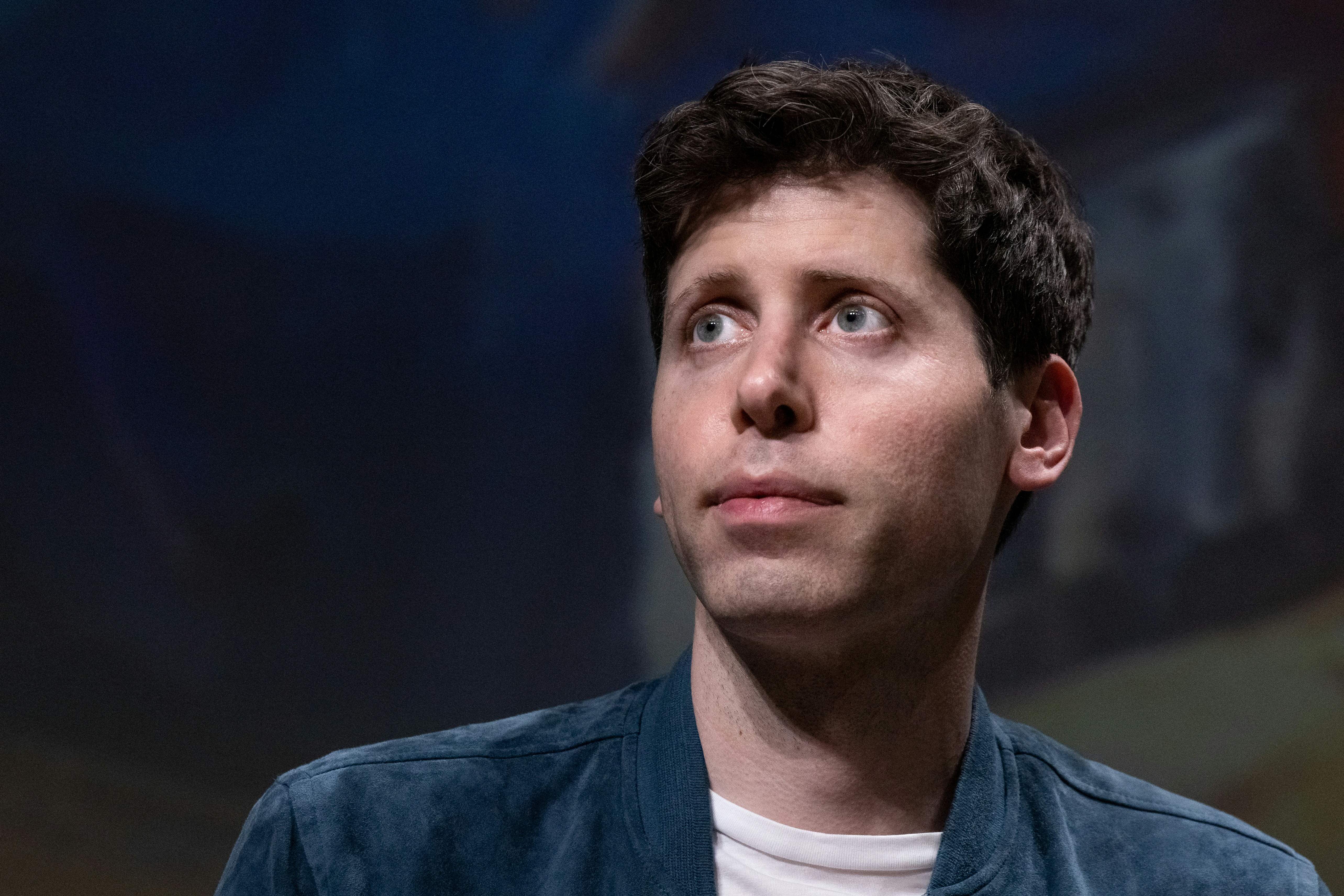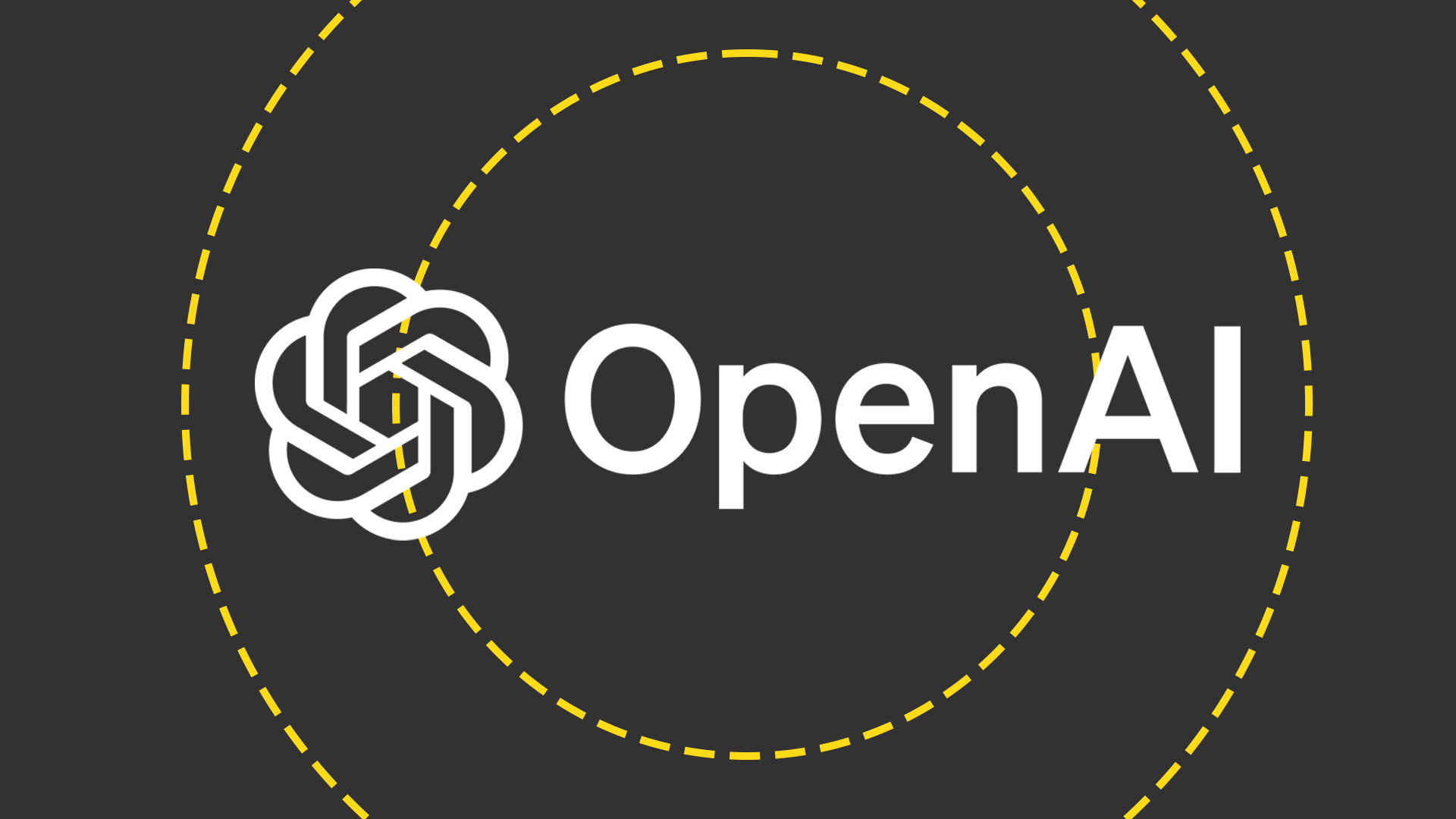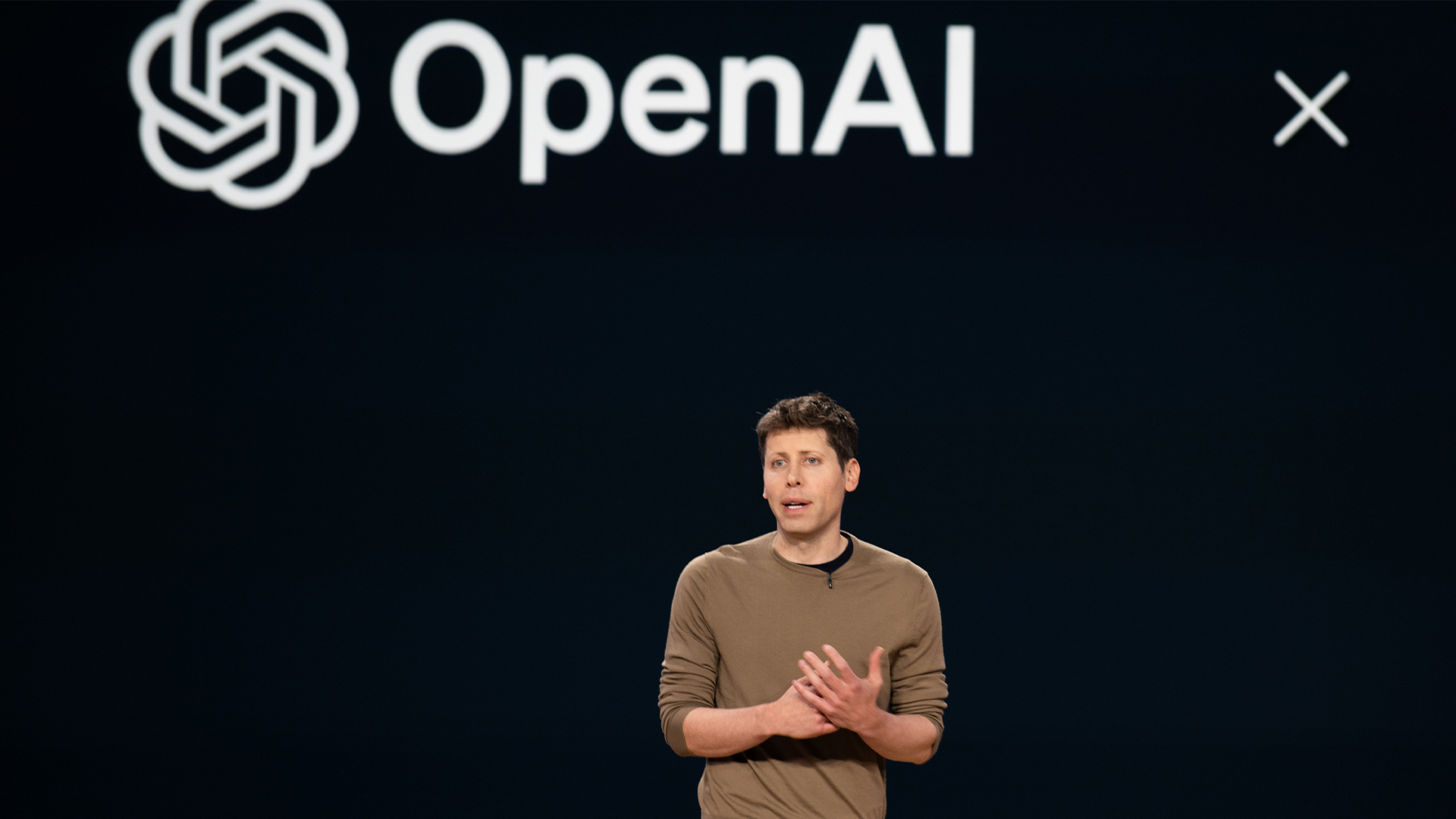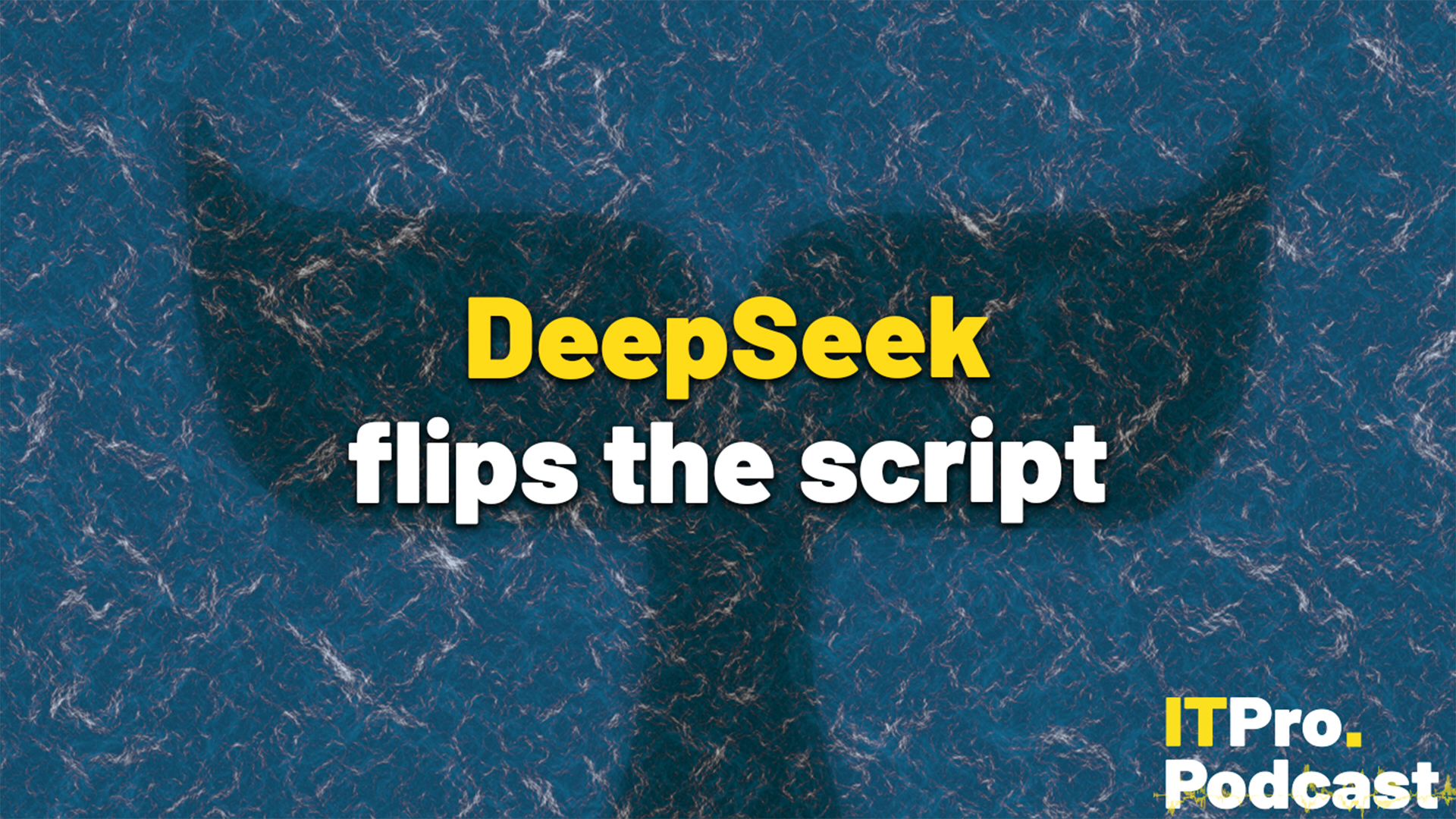OpenAI talks a big game with its GPT Store, but will it deliver quality?
The OpenAI GPT Store may become an oversaturated data privacy nightmare


OpenAI has announced users will soon be able to build and publish their own custom applications for specific tasks.
During its first developer event, held in San Francisco, CEO Sam Altman celebrated reaching over 100 million weekly ChatGPT users, with around 2 million devs using their API, and 92% of Fortune 500 companies building on their products.
The centerpiece of the event was the unveiling of GPTs, custom versions of ChatGPT that OpenAI said will enable users to easily develop and publish their own chatbots tailored for specific use-cases.
Altman said users will be able to build GPTs without any coding knowledge, using plain language prompts, describing exactly what they want while chatting with ChatGPT.
These GPTs could be focused on boosting productivity or simply providing fun. A demonstration during the event showed an engineer creating a travel companion that could quickly provide price estimates, sight-seeing suggestions, and process and store documents such as flight tickets or hotel reservations directly within the app.
Altman announced users will be able to publish their creations on the OpenAI ‘GPT Store’, a public marketplace for GPTs.
Furthermore, OpenAI announced their plans to share the revenue generated by the most popular GPTs with developers, however details on the exact nature of the revenue share were not provided.
Get the ITPro daily newsletter
Sign up today and you will receive a free copy of our Future Focus 2025 report - the leading guidance on AI, cybersecurity and other IT challenges as per 700+ senior executives
The marketplace will be ‘curated’ by OpenAI and all GPTs published on the store would be made to follow the company’s pre-existing usage policies, which include protections against generating violent, fraudulent, and harassing content.
Developers using OpenAI’s platform will also be protected by the ‘Copyright Shield’.
Under this program, OpenAI promises to pay the legal fees of premium users when IP lawsuits are filed against them for content created using the company’s products.
OpenAI GPT Store could "dilute" quality of apps
The announcement has been a source of excitement over the potential for users to create their own AI powered assistants. However, some industry stakeholders are not convinced the OpenAI GPT Store will create as much value as people think.
In a post on social media platform X, technology futurist, keynote speaker, and author Theo Priestley advised users to manage their expectations.
A primary concern is that the lower barrier to entry for AI-driven app development might create more problems than it solves and results in a “dilution” of quality across the marketplace.
Speaking to ITPro, Priestley said the plain language development model means it could take potentially minutes to develop a GPT and publish it on OpenAI’s store.
RELATED RESOURCE

Identify security vulnerabilities within your own organization before the cyber criminals do
DOWNLOAD NOW
Issues such as cloning may become widespread and dilute the value of apps on the platform overall, with only a handful actually providing useful functionality.
“It costs nothing to create simple app ideas but at the same time there is nothing qualitative about this approach. We've already seen [something] similar with AutoGPT and an 'AI Agent Store' that has automated agent personas like ‘Sales Rep’, ‘Call Centre Agent’, [and] ‘Life Coach’.”
Priestley also raised the potential danger of apps created for personal use not having adequate data-protection ‘guardrails’ in place.
“For example, [chatbots such as] a life coach or personal therapist, both of which would require a lot of personal information being sent back and forth to OpenAI,” he said.
IT professionals at enterprises looking to implement GPTs developed for internal use may also face a number of complications, with employees creating unsupported apps to optimize their workflow.
“Business users creating their own unsupported apps to perform tasks or parts of their workflow without IT knowledge, [could be] breaching data protection and IP rules internally etc,” he said.
“It's worse than no code/ low code platforms, a new generation of throwaway apps created for a single one-off use case then left to litter the IT estate.”

Solomon Klappholz is a former staff writer for ITPro and ChannelPro. He has experience writing about the technologies that facilitate industrial manufacturing, which led to him developing a particular interest in cybersecurity, IT regulation, industrial infrastructure applications, and machine learning.
-
 Should AI PCs be part of your next hardware refresh?
Should AI PCs be part of your next hardware refresh?AI PCs are fast becoming a business staple and a surefire way to future-proof your business
By Bobby Hellard
-
 Westcon-Comstor and Vectra AI launch brace of new channel initiatives
Westcon-Comstor and Vectra AI launch brace of new channel initiativesNews Westcon-Comstor and Vectra AI have announced the launch of two new channel growth initiatives focused on the managed security service provider (MSSP) space and AWS Marketplace.
By Daniel Todd
-
 OpenAI woos UK government amid consultation on AI training and copyright
OpenAI woos UK government amid consultation on AI training and copyrightNews OpenAI is fighting back against the UK government's proposals on how to handle AI training and copyright.
By Emma Woollacott
-
 DeepSeek and Anthropic have a long way to go to catch ChatGPT: OpenAI's flagship chatbot is still far and away the most popular AI tool in offices globally
DeepSeek and Anthropic have a long way to go to catch ChatGPT: OpenAI's flagship chatbot is still far and away the most popular AI tool in offices globallyNews ChatGPT remains the most popular AI tool among office workers globally, research shows, despite a rising number of competitor options available to users.
By Ross Kelly
-
 ‘DIY’ agent platforms are big tech’s latest gambit to drive AI adoption
‘DIY’ agent platforms are big tech’s latest gambit to drive AI adoptionAnalysis The rise of 'DIY' agentic AI development platforms could enable big tech providers to drive AI adoption rates.
By George Fitzmaurice
-
 OpenAI wants to simplify how developers build AI agents
OpenAI wants to simplify how developers build AI agentsNews OpenAI is releasing a set of tools and APIs designed to simplify agentic AI development in enterprises, the firm has revealed.
By George Fitzmaurice
-
 Elon Musk’s $97 billion flustered OpenAI – now it’s introducing rules to ward off future interest
Elon Musk’s $97 billion flustered OpenAI – now it’s introducing rules to ward off future interestNews OpenAI is considering restructuring the board of its non-profit arm to ward off unwanted bids after Elon Musk offered $97.4bn for the company.
By Nicole Kobie
-
 Sam Altman says ‘no thank you’ to Musk's $97bn bid for OpenAI
Sam Altman says ‘no thank you’ to Musk's $97bn bid for OpenAINews OpenAI has rejected a $97.4 billion buyout bid by a consortium led by Elon Musk.
By Nicole Kobie
-
 DeepSeek flips the script
DeepSeek flips the scriptITPro Podcast The Chinese startup's efficiency gains could undermine compute demands from the biggest names in tech
By Rory Bathgate
-
 SoftBank could take major stake in OpenAI
SoftBank could take major stake in OpenAINews Reports suggest the firm is planning to increase its stake in the ChatGPT maker
By Emma Woollacott